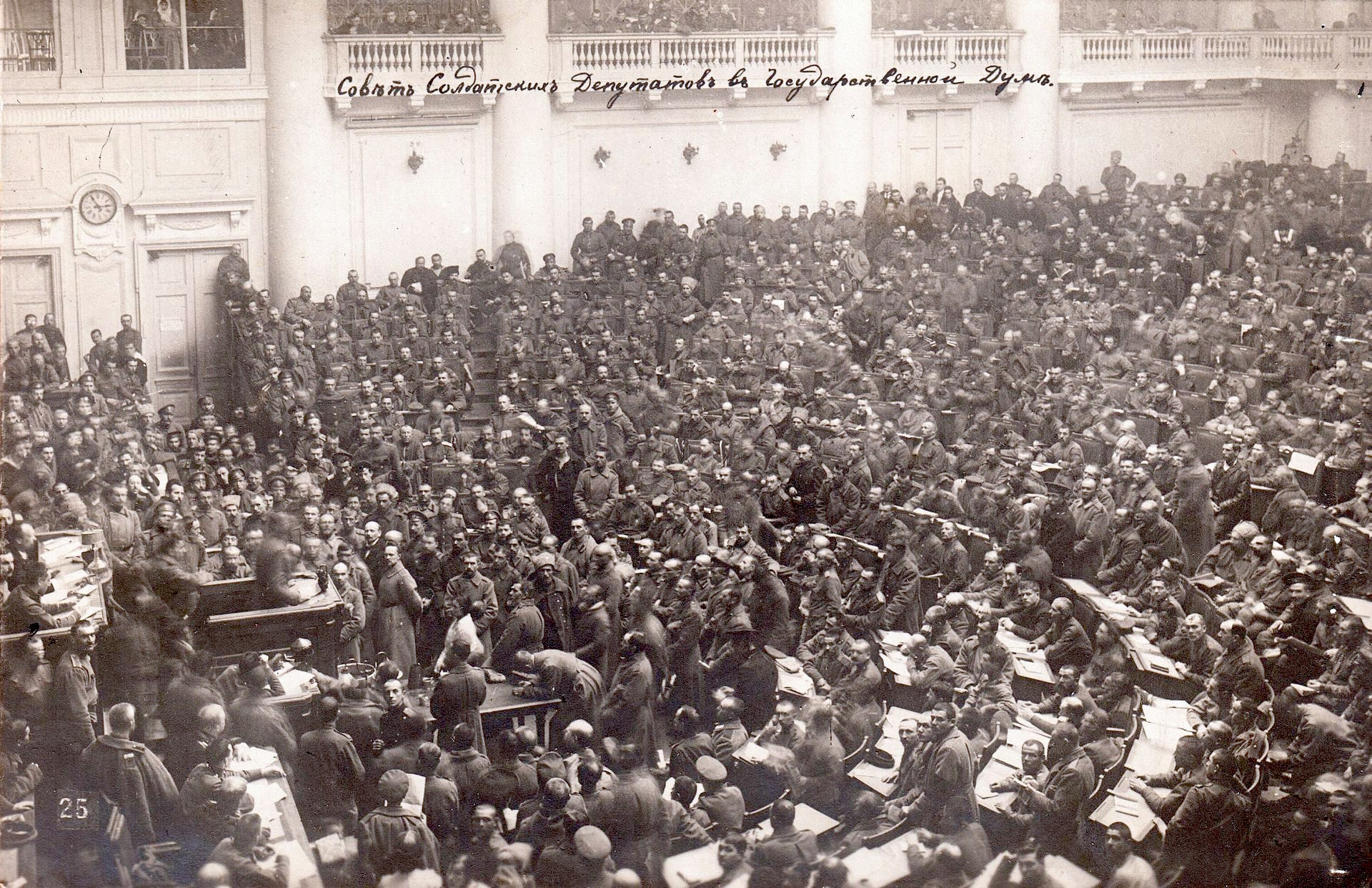The most influential Soviet was probably in St. Petersburg and it was also one of the first Soviets to form. The Soviets were repressed to a degree until the complete abdication of Tsar Nicholas II in 1917. The duma sensed that total political collapse was on the horizon and quickly established a democratic "Provisional Government" just days before the Tsar's abdication. Although the new government had many democratic and liberal policies, the Soviet emerged as its primary political rival due a disagreement over Russia's continued involvement in WWI. Much of the Russian population fiercely opposed Russia's involvement in WWI because of its dire drain on the economy. The Soviet, on behalf of the people, urged Russia's immediate exit from the war while the Provisional Government sought to remain in the war. In fairness, the new government was in a very difficult situation. Britain and France urged Russia to stay in the war and the Central Powers were still all ruled by monarchs. If the entente were to lose the war, it could result in dire consequences for the newly established government. However, resistance from the Soviet resulted in a stand still, resulting in political inertia.
Vladimir Lenin, the Bolshevik leader, was able to effectively gain majority support of the masses by urging his party and all its supporters to completely withdraw support for the new government. At the same time, workers took control factories, peasants took control over land, and national minorities broke away from their central powers, declaring their autonomy. Bolshevik support of these mass movements actually drove the people to push the Bolsheviks into taking power. "All power to the Soviets" was the slogan that fueled Lenin into fully supporting the proletariat and he eventually come to form the Soviet Union.

Petrograd Soviet meeting in 1917.
St. Petersburg Soviet members exiled to Siberia.


No comments:
Post a Comment